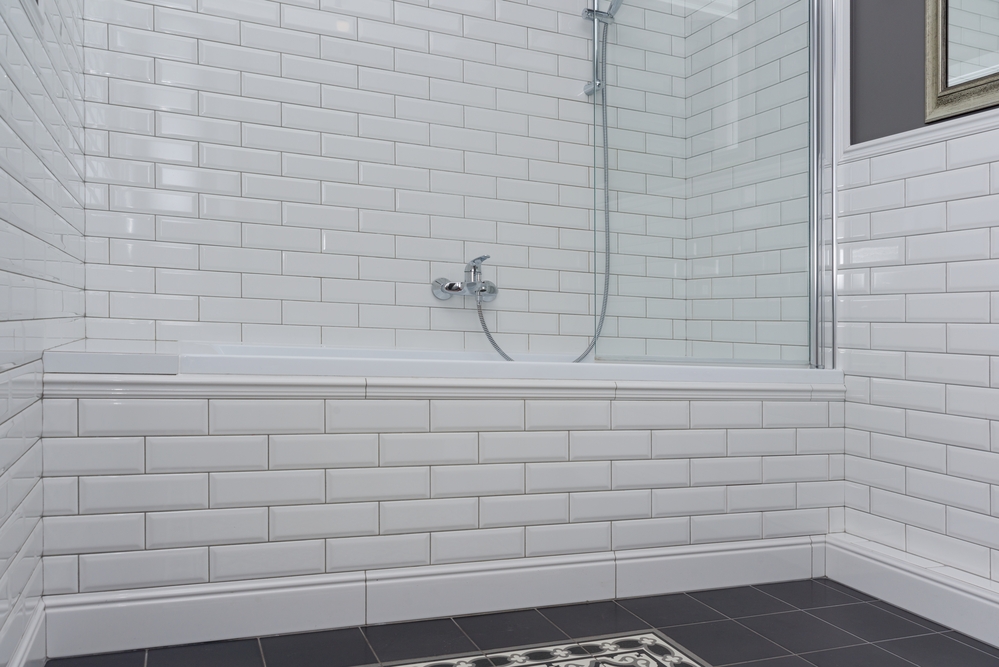Featured
Bathroom repairs, big or small, breathe life into your home. A leaky faucet fix or fixture replacement enhances comfort while contributing to aesthetics. More so, these improvements may boost your property’s resale value.
If you’re adept, DIY tasks such as bathtub resealing could offer significant savings. Ultimately, these repairs optimize functional convenience, and personal comfort and elevate the monetary worth of your home.
Here’s a breakdown of seven tiny bathroom repairs you could undertake by yourself, along with tips to make your project a success.
Tiny Bathroom Repairs You Could Carry Out Yourself

1. Fixing a Leaky Faucet
The sound of a dripping faucet can be quite annoying. More important, though, is the waste it represents – hundreds of gallons of water per year.
To repair a leaking faucet in your small bathroom, you’ll need some basic plumbing skills and perhaps new parts from a hardware store.
Turn off the water supply before you start, assemble your new faucet if necessary, and replace the old one by following the simple steps that usually come provided with the new part.
2. Unclogging a Blocked Drain
One of the simplest yet essential repairs in a bathroom relates to blocked drains. Most such issues stem from hair or soap build-up over time. Occasionally, hard-water accumulation can also cause blockage.
Baking soda mixed with vinegar is an effective solution for this task. Simply pour this mixture into your drain and wait 15 minutes before flushing it away with hot water.
If that doesn’t work, the problem may necessitate working with an expert plumber to avoid costly problems with your septic system down the line.
3. Replacing the Shower Door Stopper
Often overlooked but highly crucial for safety and privacy is replacing your bathroom door’s stopper when it fails. This repair helps maintain privacy while ensuring that no excess water spills onto your bathroom floor, which could lead to slip hazards or permanent structural damage over time if left untreated.
For such repairs, acquire a compatible door stopper from your local hardware store first, and note the original door stopper’s attachment method. The new shower door stopper can then be installed using similar steps.
Regular maintenance of this component is also essential, as it can function as a safety lock and prevent your shower doors from swinging excessively or causing damage.

4. Replacing Broken Tiles
Chipped or broken tiles are not only aesthetically displeasing, but they can also be dangerous in a tiny bathroom. To replace one, you’ll need to carefully remove it first.
It’s essential to avoid damaging the surrounding tiles in this process, so using a chisel and hammer with care is key. Once removed, apply adhesive on your new tile and position it correctly.
5. Fixing a Running Toilet
If your toilet continuously runs after flushing, it’s likely due to an issue with the flapper valve which controls water passing from the tank to the bowl.
You can usually fix this by adjusting or replacing the flapper. Remember to turn off your toilet’s water supply before starting this repair.
6. Repainting Your Bathroom
A fresh coat of paint is an effective way to revamp your bathroom’s look and feel without having comprehensive renovation work done.
Crucially: Consider using paint types resistant to humidity—often labelled as bathroom or kitchen paints—to ensure great durability amidst shower steam and hot baths.

7. Re-Sealing Your Bathtub
Are you fortunate enough to have a bathtub in your tiny bathroom? Over time, the sealant around your bathtub may deteriorate, leading to potential leaks. These can gradually wreak havoc on your bathroom floor and even seep into the level below if not treated promptly.
Removing the old bathtub caulking requires a utility knife and some patience. Once it’s off, thoroughly clean and dry the area before applying the new silicone sealant. This ensures a water-tight seal that will prevent future leaks effectively.
All in all, these tasks require time and practice to master. The results won’t always be perfect on your first try! However, learning these skills is worth it for the money you save and the sense of satisfaction you get from maintaining your home yourself.































